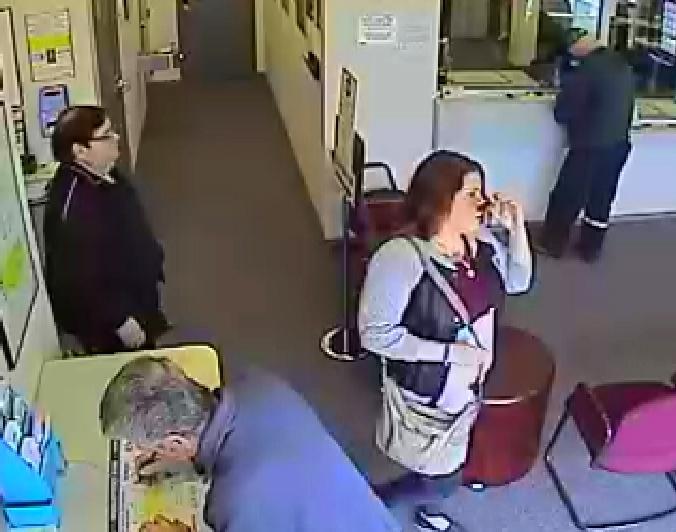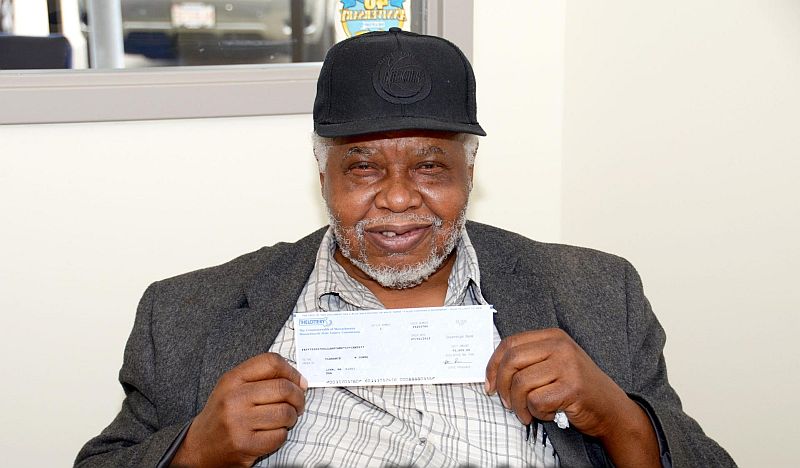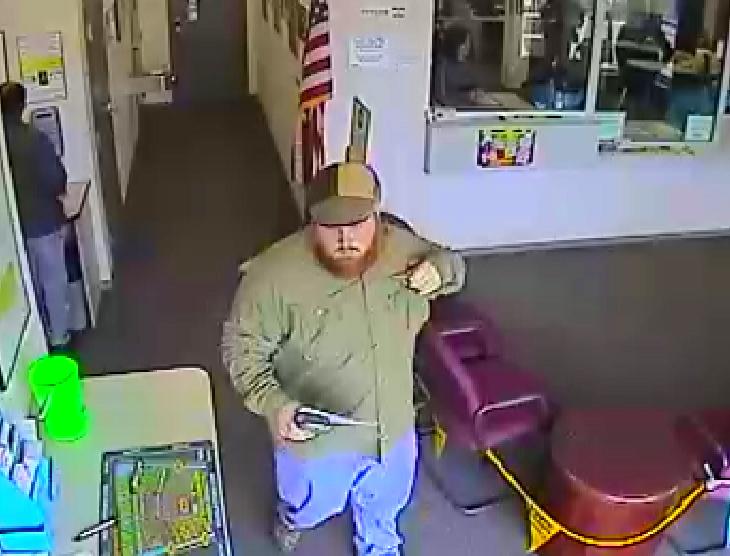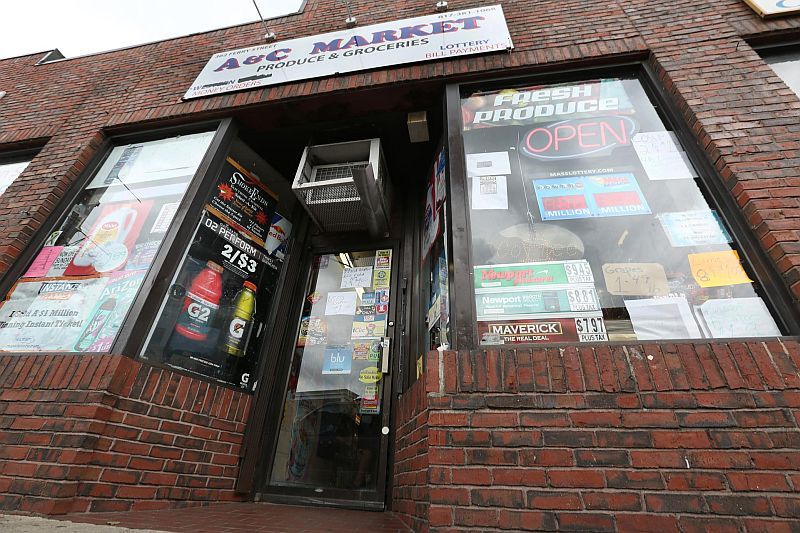The Brudnicks may be one of the luckiest families in Massachusetts.
In just the last couple of years, Chelsea insurance agent Robert Brudnick has cashed in 140 winning Massachusetts lottery tickets worth at least $1,000 each. His 25-year-old daughter Ashley has racked up another 100 wins. And his 23-year-old son Nathan, has turned in 99 more. The total take: More than $440,000, mostly from scratch tickets.
But state lottery officials and statisticians say they doubt any family could be that fortunate. The odds of winning at least $1,000 from one of the lottery's most popular $5 scratch ticket games is 1 in 5,300. Now imagine beating those kind of odds every other day, on average, for two straight years.
"It doesn't seem very likely by chance alone," said Jeffrey Rosenthal, a University of Toronto statistician and author of the book "Struck by Lightning: The Curious World of Probabilities." Rosenthal said someone would likely have to spend millions of dollars on tickets — thousands of dollars a day — to win so often. "It seems inconceivable."
So how did the family wind up with so many winners?
The Brudnicks, contacted by the Globe, declined to discuss it. But state lottery officials suspect the Brudnicks could be Ten Percenters — people cashing in winning tickets for customers who don't want to go to the lottery offices to claim the prize themselves (something required for any tickets of $600 or more). In return, the ticket cashers are thought to keep a small portion of the winnings as a commission, say 10 percent.
"We can only suspect they are cashing in other people's tickets," said lottery director Beth Bresnahan. "The odds are not in their favor" to win so often on their own.
State officials have long believed some people may be using middlemen to cash in their tickets to evade taxes, child support, or other debts.
Less clear is how such a scheme might work. One of the most prolific ticket cashers in Florida, Louis Tillman Johnson, told investigators in April there that he dealt with convenience stores that bought winning tickets from customers at a discount (usually 72 percent of the prize) and paid him 10 percent to cash them in, according to a recording of the interview obtained by the Palm Beach Post.
But Massachusetts State Lottery officials say it's hard to prove that ticket cashers are breaking any laws. And they've made little progress in discouraging people from cashing in large quantities of tickets since the practice first gained attention 15 years ago.
In 1999, then State Auditor A. Joseph DeNucci issued an audit finding that some winners appeared to be using phony names, fake social security numbers, or middlemen to evade taxes and other obligations.
And then there was the case of one remarkably frequent winner, Clarance Jones, who cashed in 319 tickets in a single year — a winning streak state auditors said defied belief. The top 10 most frequent winners cashed in 842 tickets worth $1.8 million in 1998.
If anything, the controversial practice appears to have grown since then. Last year, the top 10 winners cashed in more than four times as many tickets and claimed three times as much in prize money as they did 15 years ago.
And Jones? The 76-year-old Lynn resident personally turned in more than 1,300 tickets last year, quadruple the 1998 tally that first drew notice. Over the past decade, he's cashed in more than 12,000 tickets worth roughly $22 million.
"We haven't come up with a solution," acknowledged Bresnahan, the lottery director. Lottery officials said the lottery is generally obligated to pay out prizes to anyone who brings in a winning ticket. In most cases, lottery officials can't prove the tickets were purchased by someone else because they don't track who buys tickets. And it's not typically against the law to give away a ticket or cash it for someone else (unless tax evasion or fraud is involved).
The lottery does hold back a portion of larger prizes for taxes — 5 percent of prizes worth $600 more for state taxes, plus another 25 percent for federal taxes on tickets worth $5,000 or more.
But some winners file for refunds to get back much of those withholdings. For instance, Jones — the busiest ticket casher of them all — paid little state and federal taxes on his winnings over several years, according to filings in a tax case resolved three years ago.
At the time, Jones argued he was a professional gambler, who spent millions of dollars on lottery tickets and other games every year, almost entirely offsetting his profits. Jones insisted he had boxes full of old tickets and logs to prove it. And his lawyer said he had an elaborate system for playing the lottery. Unlike most taxpayers, professional gamblers are generally entitled to offset their winnings with losses and other gambling expenses.
The Revenue Department objected — arguing that Jones was merely cashing in other peoples' tickets and collecting discarded losing tickets to generate phony expenses. But the Massachusetts Appellate Tax Board ruled that state tax auditors hadn't taken the time to thoroughly examine Jones's records to prove their case. So Jones walked away a winner again.
State officials said they have made progress in some other areas of concern. For instance, the Lottery increasingly shares information about winners with the Department of Revenue, Internal Revenue Service, and other agencies to help them identify anyone who cashes in tickets under their own name and owes child support or certain other debts. It also compiles a list of people who received at least 20 payments worth $20,000 in a year to help identify potential ticket cashers. That list is shared with state and federal tax collectors, the attorney general, and state auditor.
Since 2001, lottery officials say they have worked with other agencies to collect $9 million in delinquent taxes and child support payments from people cashing in tickets. But that stepped-up enforcement may have the side effect of further encouraging dishonest debtors to go through middlemen to cash their tickets.
In addition, state officials filed charges two years ago against two suspected Ten Percenters for failing to fully disclose their lottery winnings to state welfare officials while receiving medical or other benefits. James T. Casey Jr. collected more than $700,000 in lottery prizes over three years, while Frank Basile cashed in more than $316,000 in tickets over four years while receiving state assistance.
But Basile — who argued his wins were offset by gambling losses — resolved his case by paying just $7,500 in restitution (less than half what the state said he collected in health benefits). Casey's case is slated to go to trial in October.
Still, prosecutors haven't charged any local Ten Percenters with helping other people evade taxes by cashing in their winnings.
Former State Treasurer Joseph D. Malone, who oversaw the lottery as part of his job, said the lottery is not a law enforcement agency and lacks the resources to prosecute potential offenders. But he said he thought federal tax collectors could potentially cut down on ticket cashing by making an example of someone in Massachusetts.
"I would think the IRS would be all over this like a cheap suit," Malone said.
In fact, the IRS and federal prosecutors have already cracked down on some ticket cashers.
Last year, Gary Boyar — a "Ten Percenter" from Charlestown, was sentenced to a year in prison and ordered to pay $43,000 to the IRS for tax evasion. Prosecutors said he cashed in more than $2 million in tickets at Suffolk Downs for gamblers and submitted more than 1,700 false IRS forms using his dead father's Social Security number. And in May, another Ten Percenter working with racing industry customers was sentenced in Texas.
Massachusetts lottery officials also require ticket cashers to sign a form swearing that they are the sole recipient of the lottery payment and are not helping someone else shirk their financial obligations.
But, so far, prosecutors haven't charged anyone with lying on the forms in Massachusetts, lottery officials said, and the IRS said it has no pending cases here.The Massachusetts attorney general did not respond to a request for comment.
In addition, lottery officials said they have worked with lawmakers on a proposal to help discourage professional ticket cashing. The bill would give the lottery the authority to withhold payouts to suspected Ten Percenters until the Department of Revenue gives it the green light to pay out the prizes.
The bill is currently sitting in the House Committee on Ways and Means, but is not scheduled for a vote before the legislative sessions ends this month.
Meanwhile, the Brudnicks have quietly become some of the state's most frequent lottery winners, according to lottery records.
The patriarch of the family, Robert, first drew attention when he showed up at the lottery offices in Woburn with five winning tickets — two worth $5,000 and three more for $1,000 — on Sept. 19, 2012. The next day, the 60-year-old insurance broker cashed in another $1,000 ticket. And four days later, he showed up at the lottery with three more.
And the tickets kept coming.
In January 2013, his son Nathan showed up with three more winning tickets. And his daughter Ashley walked in with six winning tickets in June of last year.
Altogether, the family has turned in 340 winning tickets in two years at the lottery's offices. In at least one case, Ashley and Robert come into the Woburn office together, according to lottery surveillance video taken in April.
Brudnick posted a picture of himself on Facebook standing next to a shiny red Harley-Davidson motorcycle on his birthday in April. But a friend said he's owned the bike for years and that he's had financial challenges in the past.
A business partnership he cofounded was forced into bankruptcy in 2006 and Brudnick was sued by Discover Bank two years ago for an unpaid credit card balance. The case was settled last year. In addition, his Chelsea insurance agency appears to have closed; its state license recently expired and a phone number was disconnected.
He told a friend he was happily retired, but didn't mention the frequent lottery winnings. The friend said he didn't think Brudnick was a big gambler, but was impressed by his remarkable run of winning tickets.
"Good for him," said Gerald Hagerty, who runs two security businesses in Everett and has known Brudnick for four years. "He's never mentioned gambling to me at all."
Lottery officials say they aren't certain how the Brudnicks came by so many winning tickets either — but suspect it's possible they got referrals or tickets from people working at stores that sell lottery tickets. It's also possible, the lottery believes, other middlemen are involved who know the customers or stores.
Lottery records show that the tickets the Brudnicks cashed in were originally purchased at more than 170 stores in Massachusetts — from Peabody to Nantucket — but most came from just a dozen stores.
For instance, 23 of the Brudnicks' winning tickets in the last two years came from a convenience store in Everett, accounting for one-third of that shop's major winning tickets.
The store's owner said he doesn't know any of the Brudnicks and did not know they cashed in so many of his store's tickets.
"I have never heard of them," said Carlos Caraballo, owner of A&C Market, adding that his store doesn't buy tickets from customers or refer them to ticket sellers. "We try to have the most honest store around."
Robert Brudnick also appears to be connected to another mysterious lucky lottery winner.
Lisa Carrafiello, who is registered to vote at the same Everett address as Brudnick, cashed in 157 tickets worth $600 or more over two years. The winnings added up to nearly $216,000. But after cashing in six tickets on Sept. 12, 2012, her run of winnings abruptly stopped — while the Brudnicks' winning streak started exactly a week later. Carrafiello, 50, couldn't be reached.
Meanwhile, Ashley Brudnick declined to explain how she came up with 100 winners, except to say: "You can buy lottery tickets by the books in case you weren't aware."
Lottery winners can indeed buy entire books of 50 to 300 scratch tickets if retailers have them in stock. But lottery records show Ashley cashed in tickets that were originally sold by more than 70 stores, suggesting the winners did not come from a few lucky books of tickets.
Ashley's father, Robert, said he believed he was not under investigation by the lottery, but declined further comment. Her brother also declined comment. Both asked not to be contacted again.
But before Ashley stopped answering questions, she said she only wound up "breaking even for the most part" because she spent all her winnings playing the lottery.
"I don't buy tickets anymore though," said Brudnick, who studied journalism at Northern Essex Community College and works at an animal hospital in Woburn, according to her Facebook page. "I stopped months ago."
Yet Ashley showed up at the lottery office in Woburn with yet another winning scratch ticket, worth $1,000, just two weeks ago. And her father cashed in three more tickets on July 8.
So the family's luck continues after all.
10 most prolific Mass. lottery winners
A small number of Massachusetts lottery players have beat the odds time and time again.
Ten players cashed at least 100 winning tickets worth $600 or more between Jan. 1, 2013, and May 14, 2014, according to a Globe analysis of lottery winnings obtained through a public records request. Three frequent winners collected more than $1 million.
Most repeated winners cashed several tickets — often purchased at multiple vendors in different cities and towns — at a time.
- The state's most prolific winner, Clarance Jones, brought in nearly 1,750 tickets bought at 590 lottery agents. Jones cashed tickets on 95 different days during a 17-month period.
- Konstantinos Katikakis turned in 100 winning tickets totaling $174,200 on March 28 and 29, 2013, alone.
- Ashley Brudnick, her father Robert, and brother Nathan have cashed more than $400,000 in winning tickets from 170 lottery vendors in 37 cities and towns.
Listed below are the 10 most frequent winners of the Massachusetts State Lottery, ranked by number of winning tickets of $600 or more.
-
Clarance W. Jones, LynnNumber of winning tickets: 1,745Total gross winnings: $2,493,180.25Jones cashed winning lottery tickets that were purchased at 590 vendors in 80 communities.
-
Ali M. Jaafar, WatertownNumber of winning tickets: 1,291Total gross winnings: $1,886,099.50Jaafar cashed winning lottery tickets that were purchased at 496 vendors in 96 communities.
-
John E. Steeves, BostonNumber of winning tickets: 1,070Total gross winnings: $1,672,562Steeves cashed winning lottery tickets that were purchased at 416 vendors in 66 communities.
-
Frank E. Obey, LynnNumber of winning tickets: 470Total gross winnings: $709,430.75Obey cashed winning lottery tickets that were purchased at 172 vendors in 39 communities.
-
Robert A. Renaud, TauntonNumber of winning tickets: 218Total gross winnings: $300,262.25Renaud cashed winning lottery tickets that were purchased at 132 vendors in 53 communities.
-
Chun Chu Lee, BostonNumber of winning tickets: 211Total gross winnings: $383,464.75Lee cashed winning lottery tickets that were purchased at 95 vendors in 34 communities.
-
Paul Sarkisian, WalthamNumber of winning tickets: 209Total gross winnings: $319,929.50Sarkisian cashed winning lottery tickets that were purchased at 56 vendors in 22 communities.
-
Kenneth A. Berton, SudburyNumber of winning tickets: 120Total gross winnings: $154,782Berton cashed winning lottery tickets that were purchased at 41 vendors in 15 communities.
-
Konstantinos Katikakis, BostonNumber of winning tickets: 102Total gross winnings: $194,200Katikakis cashed winning lottery tickets that were purchased at 3 vendors in 3 communities.
-
Ashley Brudnick, HaverhillNumber of winning tickets: 100Total gross winnings: $107,613.50Brudnick cashed winning lottery tickets that were purchased at 74 vendors in 24 communities.
 (Click to display full-size in gallery)
(Click to display full-size in gallery)
 (Click to display full-size in gallery)
(Click to display full-size in gallery)






I'd be at same store buying tickets as those winners. I bet they are members on lottery post.
The look on Clarance Jones face says " I am not answering any of your questions- Just show me the Money".
What a guy.
l am betting that what Mr Jones has in his left hand is the Talisman that is " allowing" him to win..
Just saying...
What the heck is wrong with some of these lottery officials?. It's bad enough, that they rip you off as it is, now they wanna butt-in on how you decide to cash-in your winning ticket. If I win a little over $600.00, I'm not going to drive all the way to the lottery office, to get that fake smile, fill out their stupid forms and get that stupid picture taken, with that almost same expression you see at all lottery websites that proclaims loudly...."I'D RATHER NOT BE TAKING THIS ASININE PICTURE". I'll trade my $600.00 ticket for anything above $400.00 to anybody who is willing go through that process. They say it is about law enforcement, I say BS, its all about control. On the other hand, when I win the jackpot, gladly will I take my happy-ass down to the lottery office, put up with the fake smile and all, never to be seen or heard from again.
Sounds like these guys are doing what others only dream of, making a living off the lotteries. It probably sounds better than it actually is when you consider these ten percenters are paying the real winners and their taxes too. Some might collect $20M over four years but I doubt if they cleared even 10% of that.
Im wondering how many tickets they are buying at one time. Im sure they are winning more than they are spending but you're lucky if you can buy one ticket and hit it big but if you spend a couple hundred on tickets you're hoping to at least break even LOL
Well it's widely known there are cheats out there.
There is some serious underground stuff going on here!!
They are cashing in tickets from stores that were purchased miles away from where they live.
Look at how many different stores/vendors these tickets came from.
This a family business now! lol It's a family affair!!
The Lottery knows what's going on!!
Remember this is the same state that allowed those MIT students to cash in millions on their
Cash WinFall game for years!
they know...they know...
The majority of these winner are probably "ten percentors" and it just amazes me that active LP posters can't see it.
Jones cashed winning lottery tickets that were purchased at 590 vendors in 80 communities.
Covering that many communities would made finding players with winning tickets that they are willing sell a full time job.
It's no different than buying tickets in that many communities. Probably more like convincing the retailers to call them if a winner wants to cash their tickets with no questions asked. My experience was with horse and dog racing tickets and finding someone to cash a "sign for ticket" was easy.
If it wasn't for the IRS, they wouldn't care what was going on as long as they sold tickets.